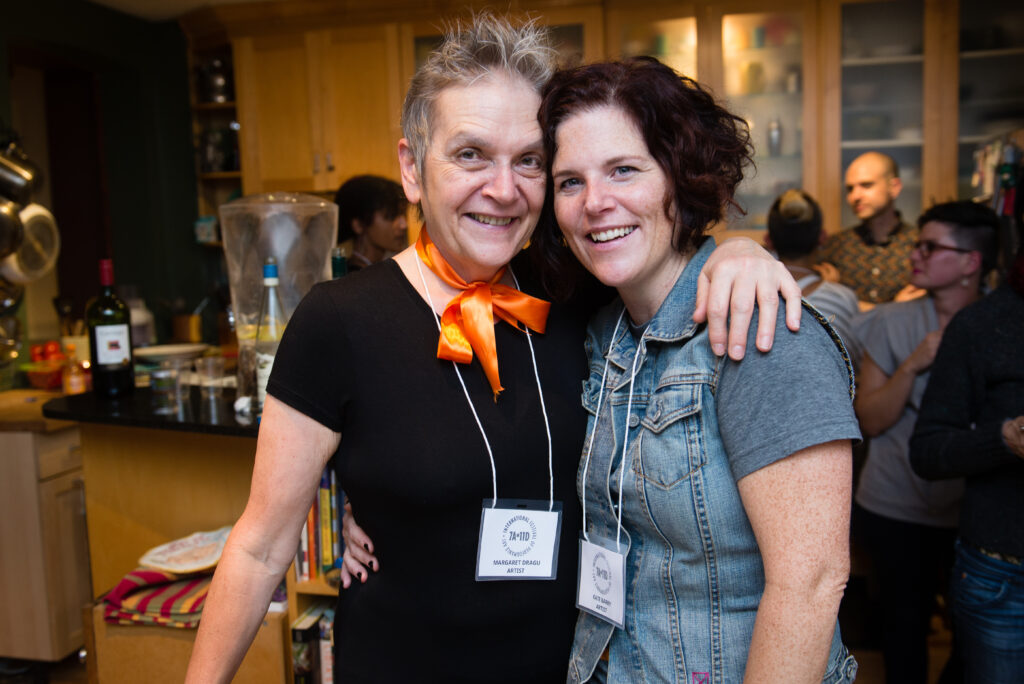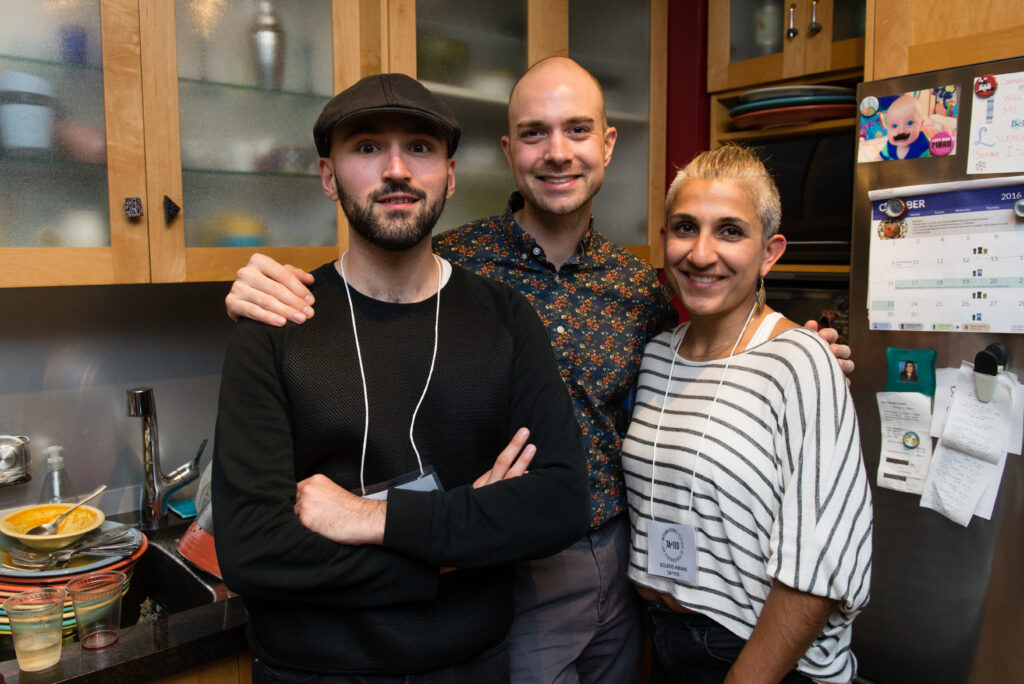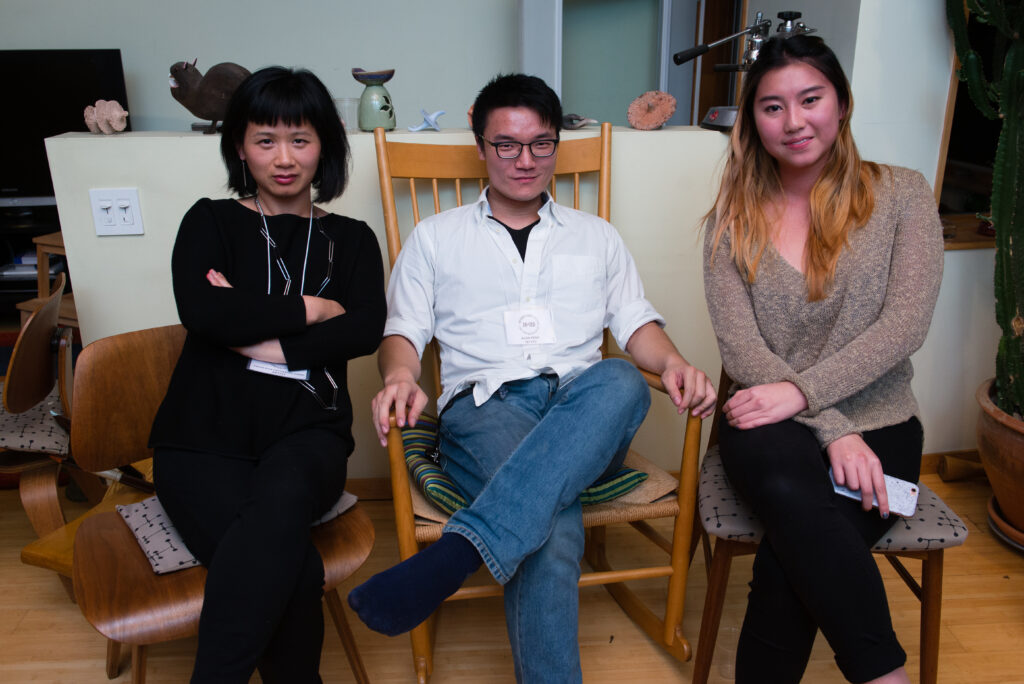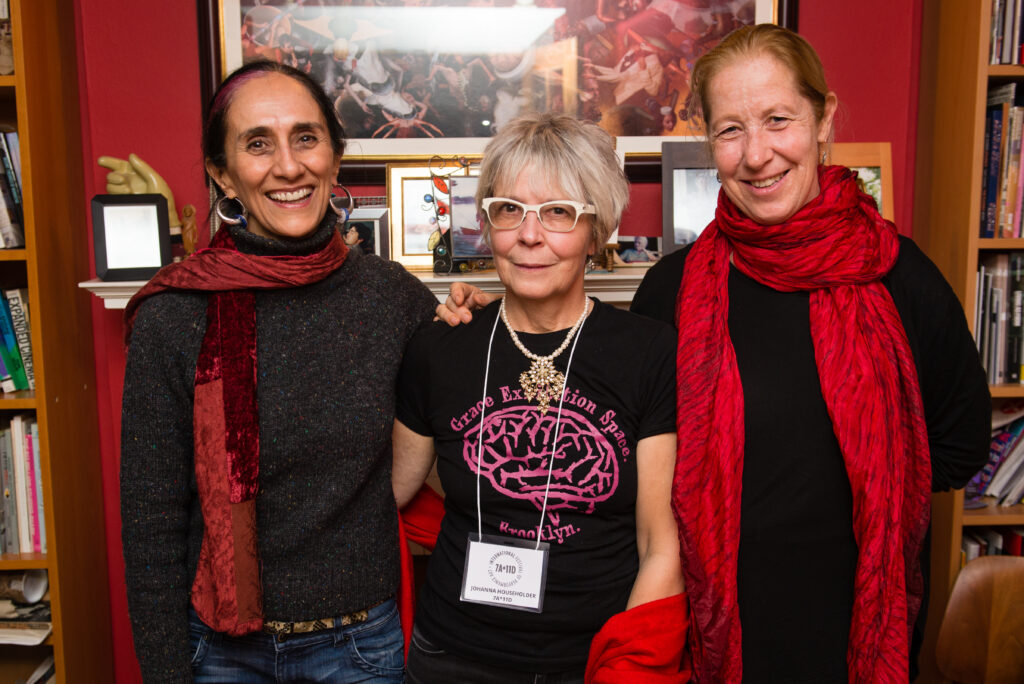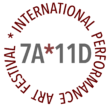By Jessica Karuhanga
A conversation between Jessica Karuhanga and Michelle Lacombe
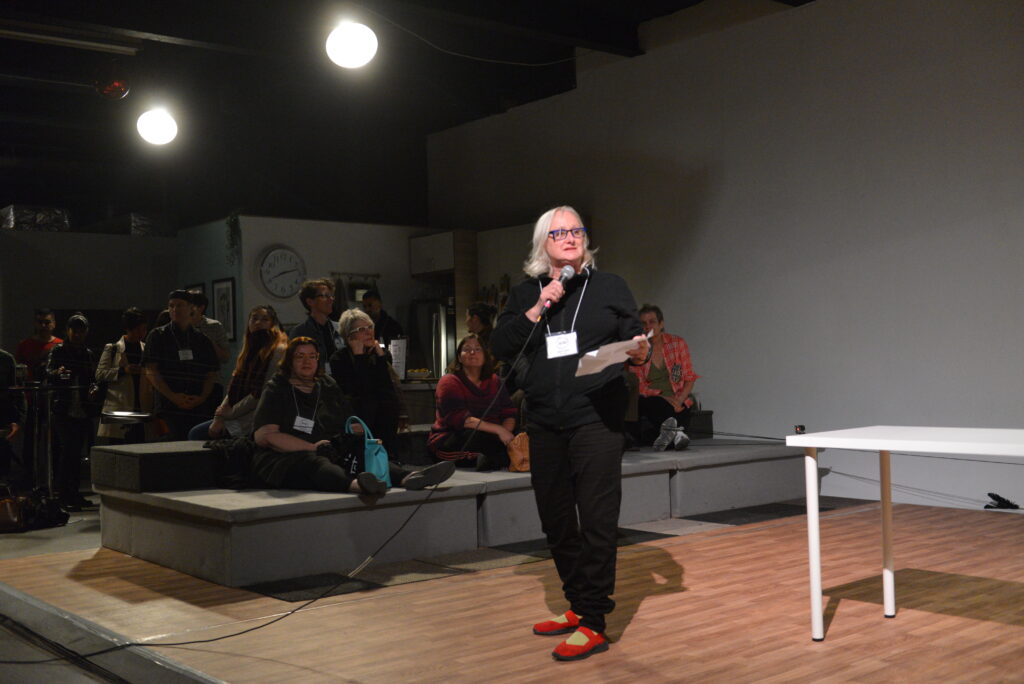
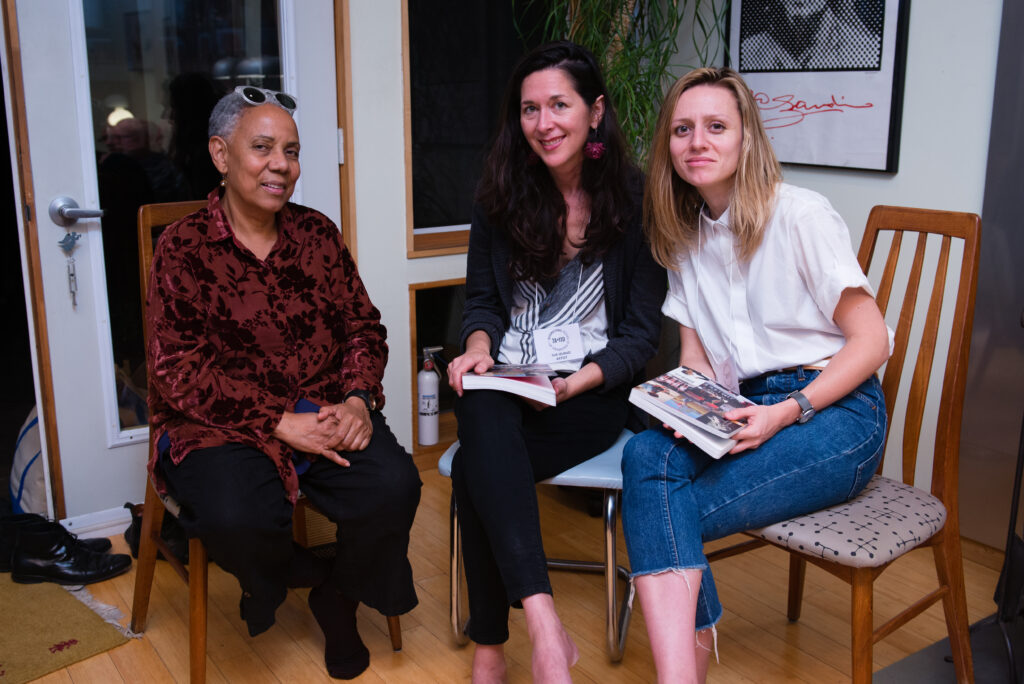
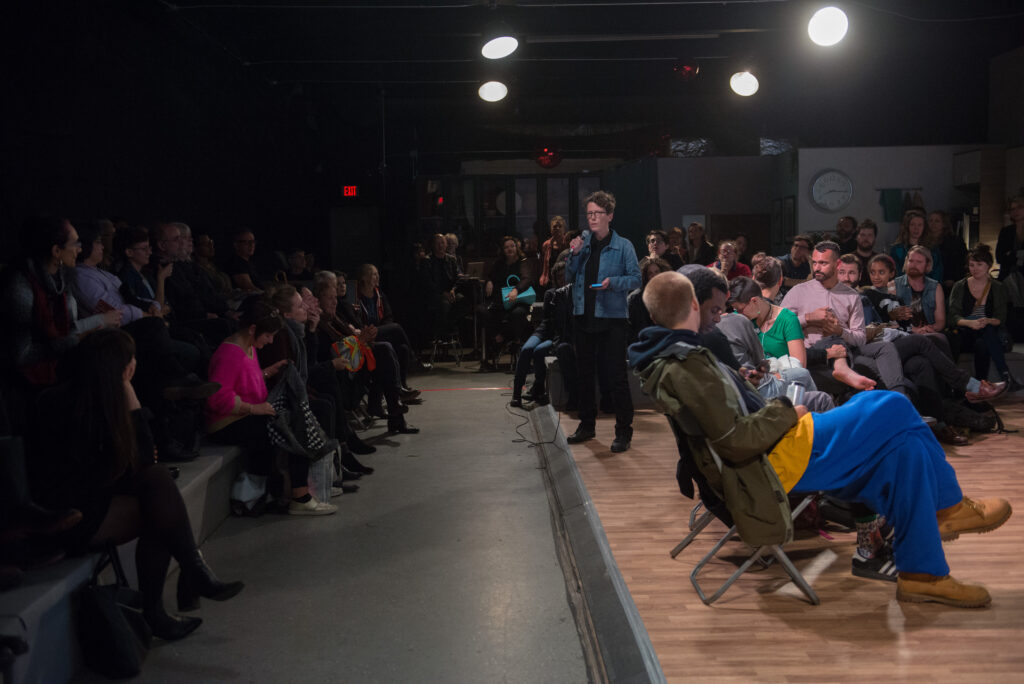
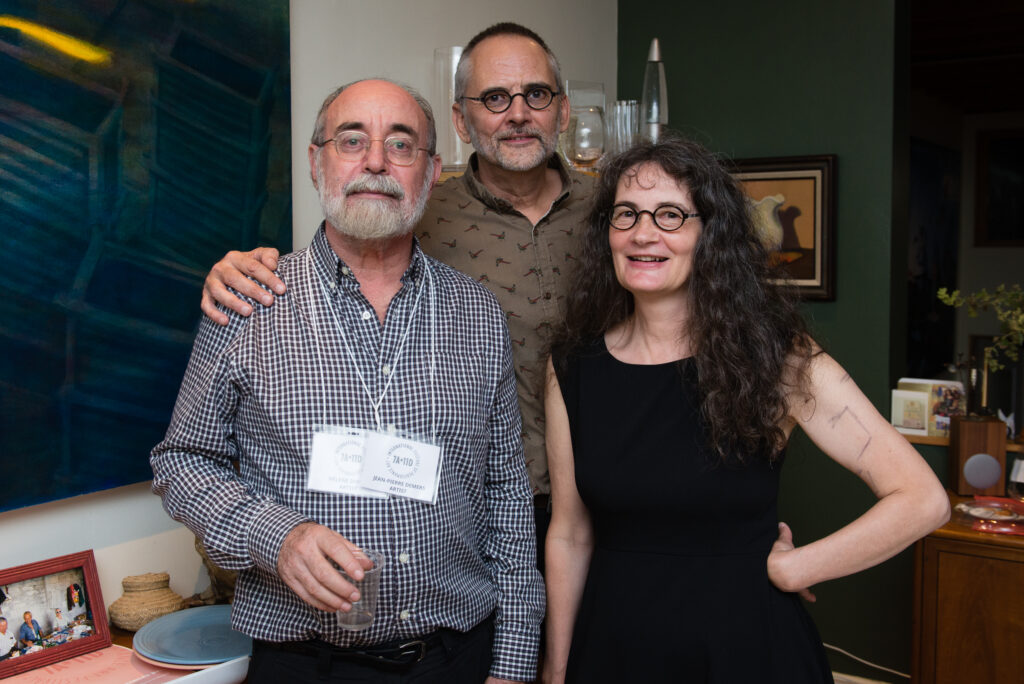
M. Having seen some previous editions of 7a*11d, what, to you, distinguished this one from other incarnations? Did it feel representative of the festival?
J. I have attended the last three iterations of 7a*11d so I will speak to these experiences. What I know of the festival is that it always materializes differently yet there are forces that are constant. These constant forces are the organizers. Much of this energy is unseen. I must also note the reemerging figures, like Margaret Dragu, who feel integral to the fibre of the festival. It seems to me that 7a*11d is like a constellation of sites extending and meshing through networks of affinity. The most recent incarnation materialized in several sites. The main site felt like a stage which framed movement in a very particular way and it was fascinating to see the different strategies artists utilized when working within these parameters. I witnessed how to bend a frame so to speak. Some gestures seemed more successful or creative than others. Moments I miss from the past are bound up in geography. The first 7a*11d I attended unfolded at a couple artist-run centres positioned across the street from each other [Mercer Union & the now-defunct Toronto Free Gallery]. Each evening following the performances we would move on to the bar to dance and drink. I felt I got the chance to meet more people. I met some of the loves of my life, actually. My position this year was different. I was employed by the festival as a witness and writer. I was present in a different way. It demanded of my body differently. I was coming from home versus being a visitor. Maybe let’s talk more about the site, where most of the evening programs took place.
M. OMG. SO. FRONTAL. But with some distance it is difficult to tell if this reading was exasperated by the performances, or if it really was simply the result of a rigid layout (chairs lined up in front of a demarcated performance area). For sure the space always frames the work (in some way), but can the performances not also reinforce or resist the space? As you so eloquently stated, bend (or build) the frame. I think there were two successful approaches we witnessed: artists who totally worked to reshape the main site and our relationship to it (such as Joseph Ravens), and those who simply embraced the frontal position with actions that were strengthened by a single perspective (Francesco Gagliardi). I guess a third category would be artists who chose to work off-site, an absolute refusal of the site. But even there, it is not so obvious to break the persistence of the frame. I recall being surprised at how stage-like the sidewalk had become during Tanja Ostojić’s performance in public space. Was it the crowd? The cameras? The woman holding the sign? The way the public cut across the corner in an arch to minimize, ever so slightly, the distance travelled? Her presence? Probably the mix of all of it.
As I was writing my blog entries I realized that I would sometimes describe the main venue as a stage, and sometimes as a space. What inspired me to write “stage” when describing some works and “space” when describing others? It was literally the exact same place. While I habitually switch up vocabulary to avoid linguistic repetition, I am certain the way in which I attributed the words was informed by the performances.
Did you find that writing made visible a way in which you were reading the work that you were previously not aware of? Like the way writing made me aware of this spatial binary I was using to read the performances. You talk about a different presence and it being differently demanding of your body, would you elaborate on how this may have changed your way of seeing the works?
J. I too have been thinking of how I moved between the words “stage” and “space” as a way to describe the site. Yes, part of this is a strategy to avoid redundancies. There still remains a binary between this flat surface (stage) versus the vessel (space) that holds you. This holding can linger long after the initial art encounter transpires. The task of writing, a form of representation, was frankly frustrating at first. I wanted distance after witnessing. I generally need time to process or articulate the things happening in the site. It’s tricky. Usually with each art encounter I respond first from my body. I produce this way too. I follow my intuition. After this I begin an attempt to grasp an element to pull me into the work. A work can be disarming or confusing at first, especially if I don’t get all the signs. I am trying to let go of this need. It’s a bit entitled to want things catered to you. Anyway I felt a bit strange at first engaging in a process of translating these felt/bodily responses into another form and for others to digest. Knowing it was for others. We were the so-called “Eyes and Ears”. I believe we were a pair of eyes and ears but we weren’t the officiates. I appreciated the reflective conversations that took place between the spaces of the performance. The witnessing that took place in the splits so to speak. The splits being moments of transition. Moments at the bar. Back to your question or highlighting when I said “I demanded of my body differently.” I think it’s the way an occupation can become a pair of shades, a layer or a filter. I had to distance myself a bit from the responsibility of being the “eyes and ears”. This is not because I don’t want to own a position or politic but because of what it demands of my writing. I wrote less fluidly, less freely at first because I felt anxious. I know this is silly. I know they trusted us. But, the site, the stage and space, was also such an intimate place. So I began my role carefully, writing generally and descriptively, and this grew into a writing that was awash in feeling.
Do you have thoughts on sight and sight lines?
M. I am not to sure what you mean. Like visibility? (Which is a word I use a lot but that I realize does not actually mean much!)… But I hear you. The role of being “Eyes and Ears” was heavier than I had expected also. Too authoritarian and too vulnerable at the same time. But I am totally proud of the work we did, and how we worked together.
J. I’m proud of us too! Hmm, I guess I was trying to probe or highlight a poetics and politics of seeing. That there are different ways of seeing and how this seeing, a sigh tline, is informed by a melange of things you bring with you as you bear witness.
(M. interjection) YES!! This is a very interesting actually. I became really self-aware of the way in which I engage with performance, like what do I bring to it as an audience? What am I looking for? What am I disregarding? Where am I shutting down? I confronted myself with these questions because I was seeking some sort of “objectivity”—or at least some position and accountability—as a counterbalance to the weight inherent in communicating on behalf of and preserving for. I really wanted to be responsible. This constant critical self-reflection was exasperated by the talks. It was difficult to just be in the work. In the end, I think the exercise of blogging had less of an impact on the actual writing style than on my level of self-awareness in regards to the way I look at artwork. To be honest it feels a bit like a curse because, ever since, when I see performance, I am constantly trying to position myself in relation to it. I am over-thinking and I find it rather ungenerous as a position. So yes, the exercise has totally changed the way I look, or see myself looking, even more than the way I write, which I did not expect.
J. Yes. Totally. I like how you remark on the weight of our positions. Yes, I’m proud of how we worked together. I loved reading your reflections. The generosity in the depth of your response. There was a symbiosis of our voices that formed over the course of the week despite the fact we never met before this festival. I don’t identify as a writer per se. I struggle performing, owning and claiming this title. I remember you saying something similar one day when we had lunch.
(M. interjection) I agree. It is uncomfortable to self-claim the title of writer, particularly as it is not our medium, but after the work you did, we did, I think we can proudly add it to our list of skills!
J. I wonder if the form of the blog, its looseness, eases the authoritarian aspects of writing? This could be nullified by the fact we are the only two voices on the blog. But, my personal blog, for example, is a space where I can write free-form and relatively carefree which feels very different from the pressure of things I’m commissioned to do. You have blogged more than me. How was this period of reflecting and writing the same or different?
M. This is actually the first time I have blogged. Other writing I have done has taken the form of short informal essays produced upon request. I enjoy the distance and the structure that characterize these types of writing experiences more than the looseness and immediacy of the blog. I never quite knew where to position myself in the blog. I am a Capricorn, I like form, even if it is to break from it. There is a comfort and confidence in the distance it provides.
J. My Rising Virgo and Virgo Moon appreciate hearing your sentiments around form. I need this grounding despite my Aries impulses. Anyway, for some reason I thought you had more blog experience than me. You seemed seasoned. Haha. Okay, I want to return to this exasperation your speak of. It’s not just panels that do this. I’m teaching performance art right now and in the beginning my students felt the need to explain everything. They would give these disclaimers or didactics. Before performing they’d be like, “Okay it’s starting now and it’s about ___.” It was totally endearing. But, it talks around the thing. I was like, “No, no, no—I need to move you away from this impulse.” The object, the gesture is the thing. Don’t translate it. The extra information becomes this veneer or covering. An obstruction. It totally thwarts the experiencing. I remember doing this once in my undergrad and my mentor being like, “Don’t make assumptions about what I do and don’t know. Everything I need is here.” That means so much to me now. What we were doing is different. It is a looking back. Hmmm.
(M. interjection) Wow, that is good mentor advice! And you are correct. Looking back is different, but I think you are pointing to a real similarity. There is something that is lost in both the students’ preemptive monologue and the post-performance over-thinking/over-explaining we were practicing in our writing. Like something is lost or suffers. A magic of sorts that fades when you get too close. Glow in the dark stars work like that. Look straight at ’em and they self-erase, but from the periphery of the gaze they glow like mad. This manifests itself very concretely in performance. For instance, I can be totally hypnotized by an artist tumbling around with bags of potatoes but the more I try to explain why it is fascinating to me, to capture and communicate its magic, the more it starts to sound like someone just tumbling around with bags of potatoes. Like the explanation of it distances me from the experience of the work instead of bringing me closer.
J. Throughout the festival I would tune into Margaret Dragu’s daily broadcasts, these lovely assemblages, which formed a new season of VERB FRAU TV. The exchanges between Dragu and her guests always transpired in the kitchen. You gaze in. I would play them as I would maybe a podcast. I would clean and putter and mostly listen. I felt permission to do so watching her stretch and do Yoga. Also because it’s how we move through kitchen spaces. For me this was markedly different from a pane which is more formal by proxy of its definition. How or what did these VERB FRAU TV sessions give to you? By give I’m thinking of the generosity both of us seem to seek or want out of an art experience.
M. Full confession, I didn’t actually watch VERB FRAU TV during the festival period… I couldn’t find the time for this type of listening/encounter within my schedule and instead spent my free time at the smoking bench (outside the hotel) chatting with artists as they arrived and left. But I am willing to assume that these two forms of encounter operate in a similar manner (though one inserts itself into your domestic life/routine, and the other takes you out of it). In both cases, we are seeking more casual, and perhaps fragmented, encounters (with the artist instead of the work). Human encounters. Points of connection that use discussion rather than review, analysis and re-articulation. These moments seem to collect in what you called the splits earlier on in this text. Around the stage and in the kitchen.
Let’s be honest. One of the most amazing things about performance is that the material is a person. The artist is literally right there being the work! So social forms of encounter (over a beer, in the subway, on TV), being in the splits, allow us to get to know the artists in causal ways that I feel are very important to the understanding of the work. Performance pulls from life so the more you know about someone’s world, the better equipped I think you are to locate the work. Opportunities to talk casually, to spend time with the artists, nurture in me a form of knowing that feels more holistic, constructive and relevant to echo back into the community than, say, my somewhat random and totally subjective personal opinion. Platforms like VERB FRAU TV and the less official smoking bench give us access to the person (who is an integral part of the work) and, as such, enabled me to expand my considerations into areas such as intentionality, vocabulary, context, community, culture, etc. This seems way richer as a starting point for writing, and a particularity of the discipline worth exploiting.
Having spent so much time reflecting on the work of others, I am wondering if and how this experience has changed your relationship to your own performances. For me, the experience really inspired a desire to be in action. Perhaps to assert myself as an artist…? Perhaps to distance myself from such a cerebral process…? I have performed twice since the festival and both times have been characterized by a refreshing sense of freedom and playfulness I somehow think it’s reactionary to the pressure I put on myself as a blogger. So, thankfully, it seems that the post-blog curse of over-thinking is contained to my experiences as an audience and not my posture as an artist. I know you performed in Montreal a short time after 7a*11d, was this informed or tainted by your experiences writing in any way? What’s next or what do you want to take with you/leave behind as you move away from this experience?
J. You were residing at the same hotel as many of the participants. I imagine you would have coffee together in the mornings and travel together to sites. I always want to prolong these casual exchanges. They can be so pure. I like how you describe these exchanges as echoes. To be honest that was missing for me this year. I didn’t have enough space reserves to unwind with the guests. When I’m witnessing I’m making judgements and taking notes. These are always gifts. A gesture or a device in someone else’s work might make sense of something else I’ve been processing in my mind. Some of these notations disappear. They are fleeting thoughts. So it was lovely to intentionally and ritually write down all of my observations. The process made me consider my movements differently. I’m not sure what’s next or what precisely I’ll take with me. But I’m ready to let go of some trivial fears.
